ProjectRocketHack.io
TL;DR
Rockethack.io is the result of a frustrating experience when trying to find cool hackathons to sign up for. This project aimed to centralize hackathon information specifically for the European and DACH regions, making it easier for students and young professionals to find their next challenge.
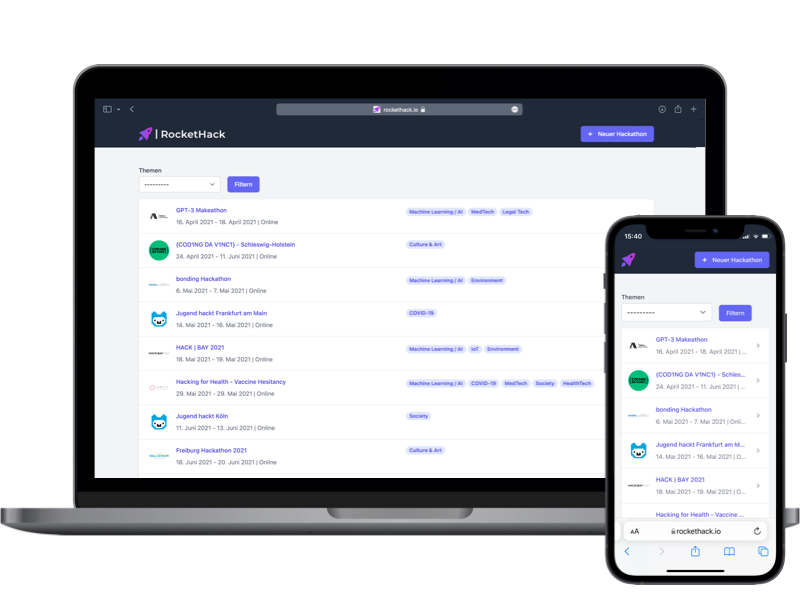
Problem
After participating in the START HACK 2021 with Andri Turra and Armando Schmid, I was hooked on hackathons and the challenge of going from idea to initial product in just 48 hours. However, finding suitable hackathons was challenging due to the lack of a central database focused on the European or DACH hackathon community.
Websites like DEVPOST list hackathons globally but lack specific country filters, making it time-consuming to find relevant events. Eventbrite, often a top search result for "Hackathon Switzerland," mixed hackathons with unrelated events like courses or networking sessions, making it difficult to find genuine hackathons.
A prominent search result for "Hackathon Switzerland" was Eventbrite. What looked promising at first turned out to be mostly companies trying to sell courses or networking events with some hackathons sprinkled in between.
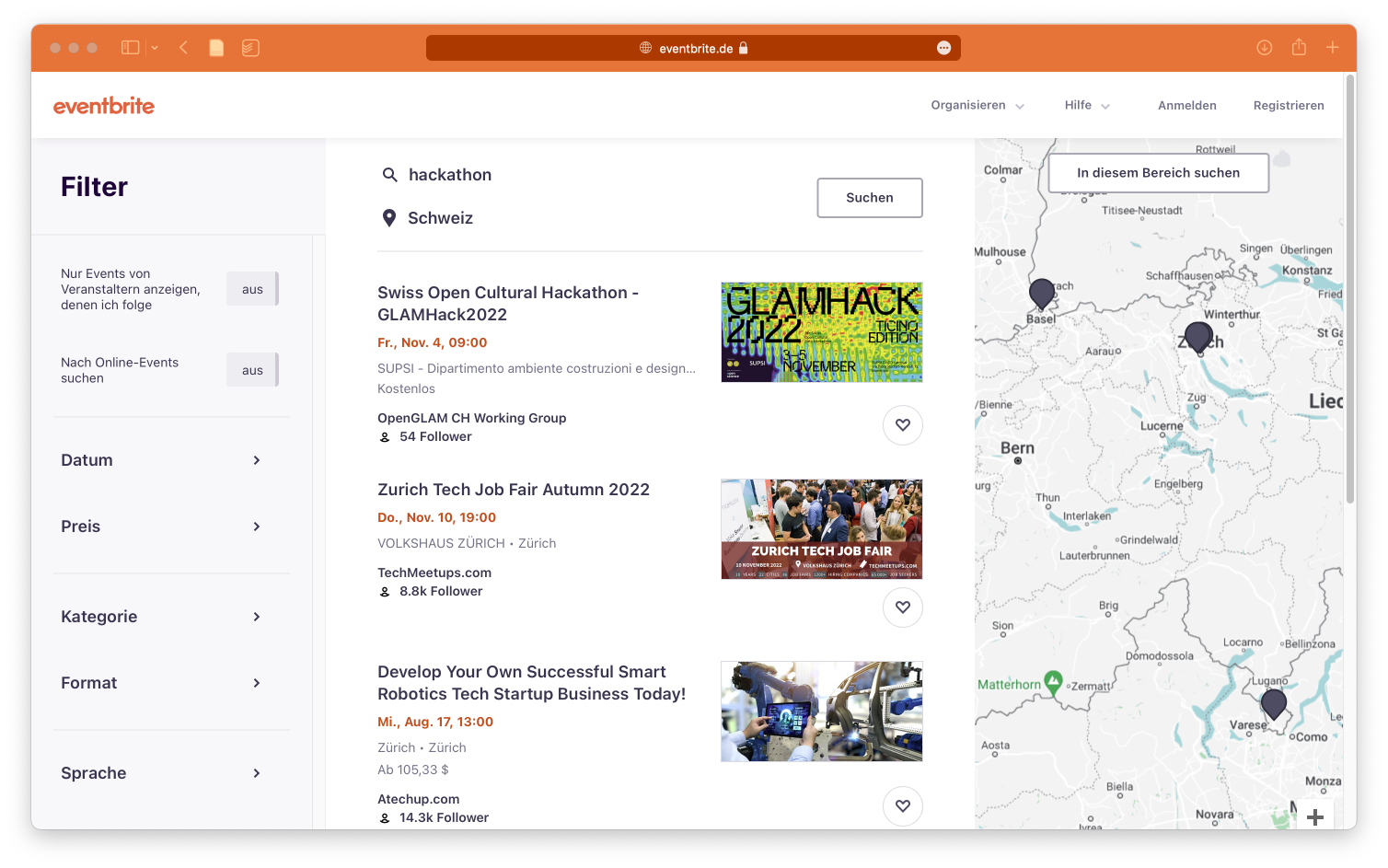
Neither alternative was fruitful. I figured that if I'm looking through pages of Google search results, I might as well put them in a database and share the results with others.
Approach
To understand the pain points, I reached out to over 30 participants from START HACK 2021. I aimed to learn how they searched for hackathons and what information they found most valuable. The insights led to the creation of user stories:
As a hackathon-interested person in the DACH region,,
- I only want to see hackathons in this region, so I don't waste time scrolling through hackathons across the globe I will never be able to participate in.
- I want to find hackathons for the topics I am interested in, so I can make the most of the experience.
- I want to see the sponsors of the hackathons, so I can sign up for the ones supported by a company I want to potentially work for and make connections.
Solution
Rockethack.io aimed to be the go-to platform for ambitious young professionals seeking their next challenge. The site provided all relevant hackathons with key information such as event dates, location, and topics. Outdated events were automatically removed, and users could filter the list by topics.
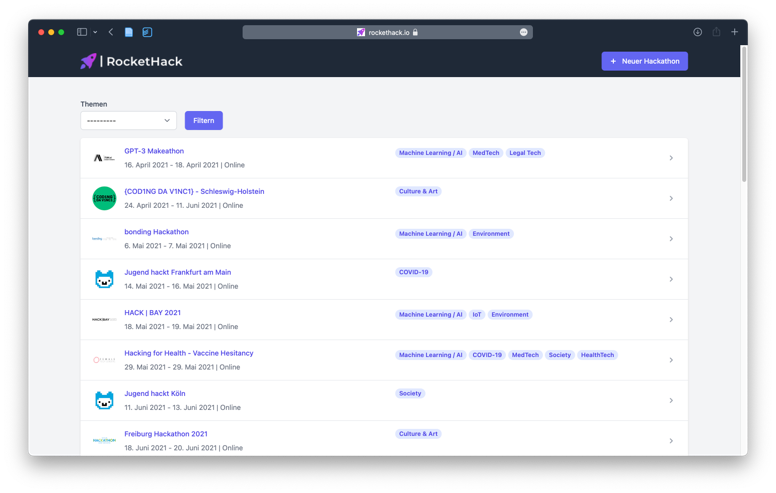
Clicking on a hackathon provided detailed information, including dates, application deadlines, location, description, program, and prizes, all above the fold. Users could also find information about organizers, sponsors, and partners.
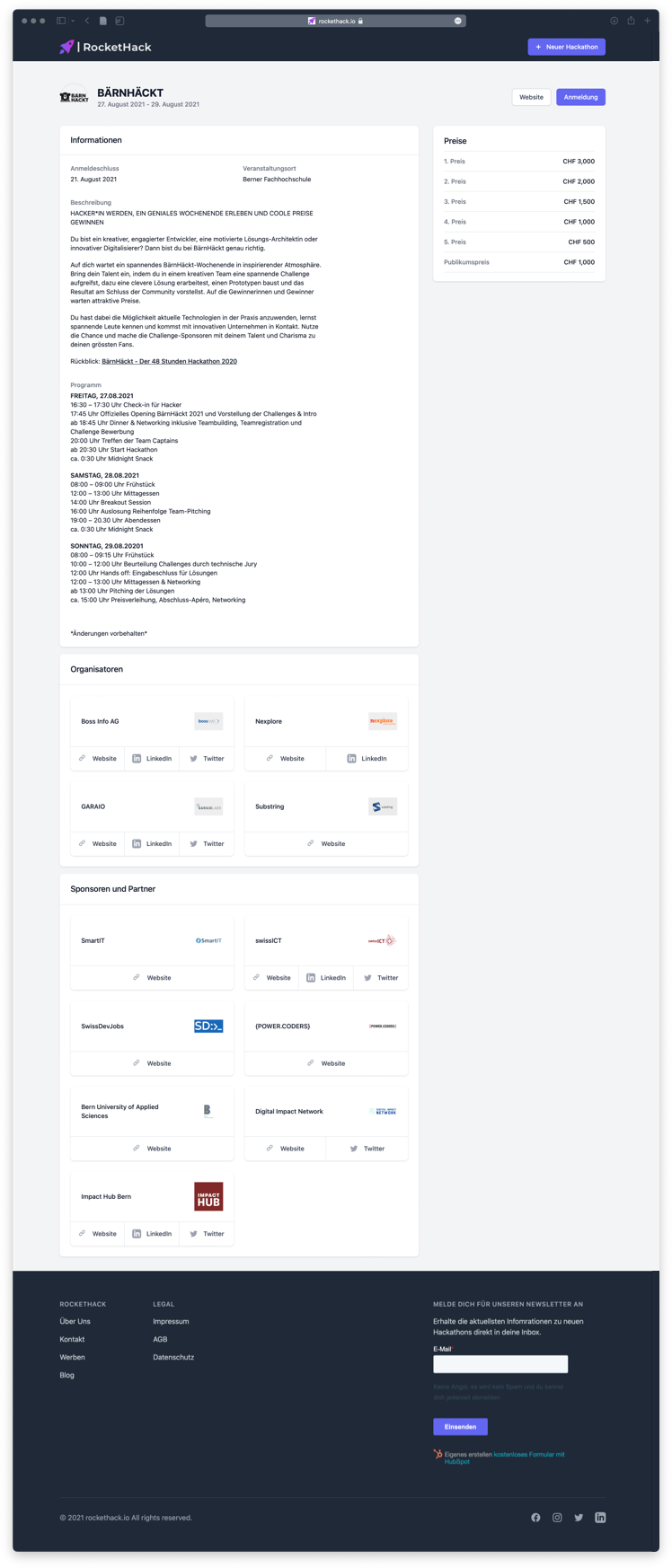
Organizers could add contact information for easier communication.
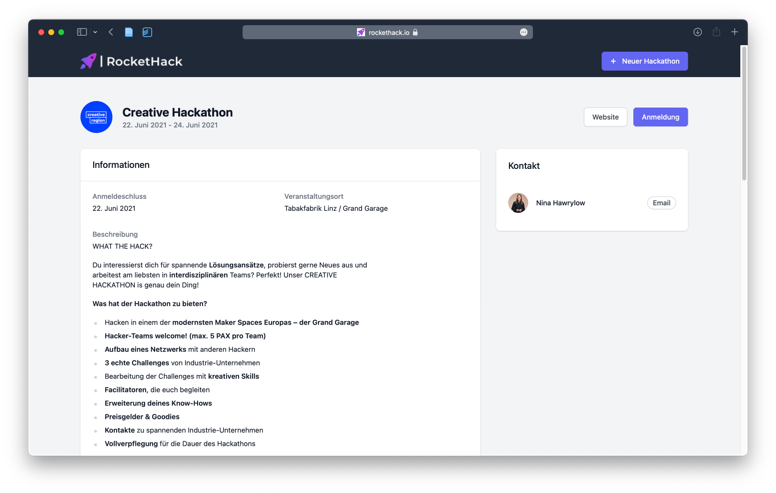
The platform was also fully responsive, ensuring a seamless experience on mobile devices.
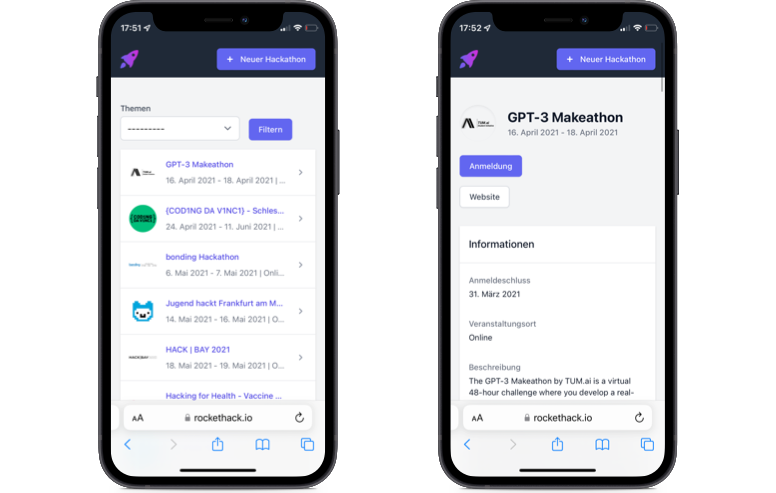
Technical Implementation
Rockethack.io was built with Django, a web framework for Python that follows a Model-View-Template architecture.
Models
Django models map to SQL database tables and handle data relationships. For example, the sponsor model contained information about hackathon sponsors.
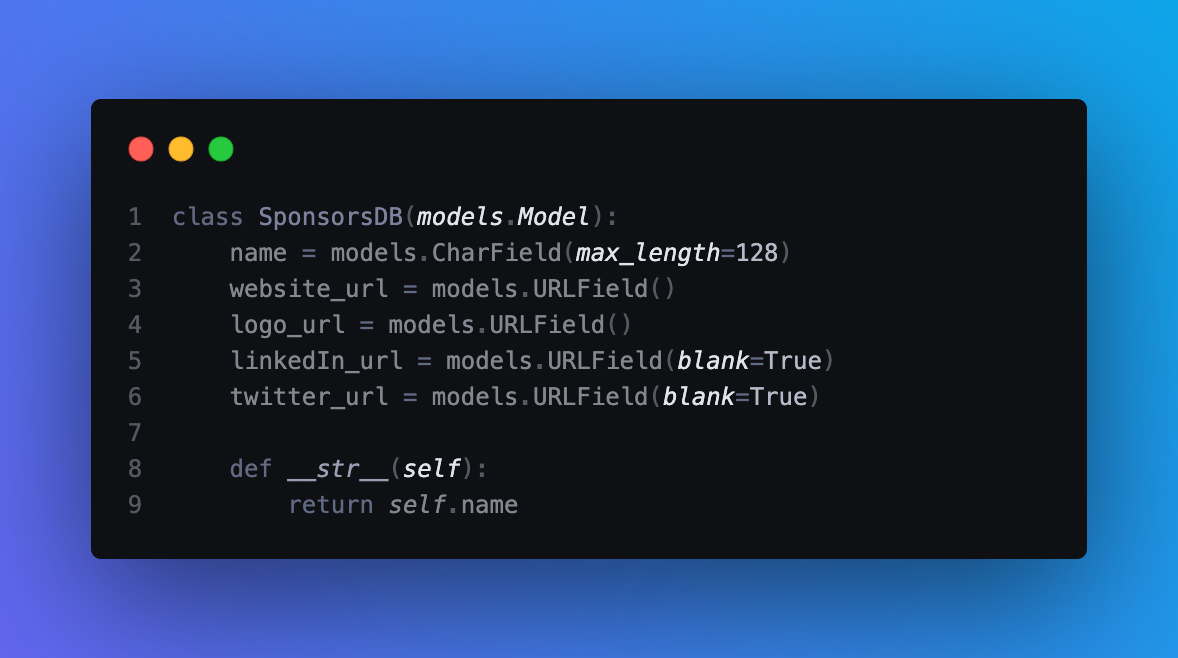
Django simplifies defining fields and relationships between models.
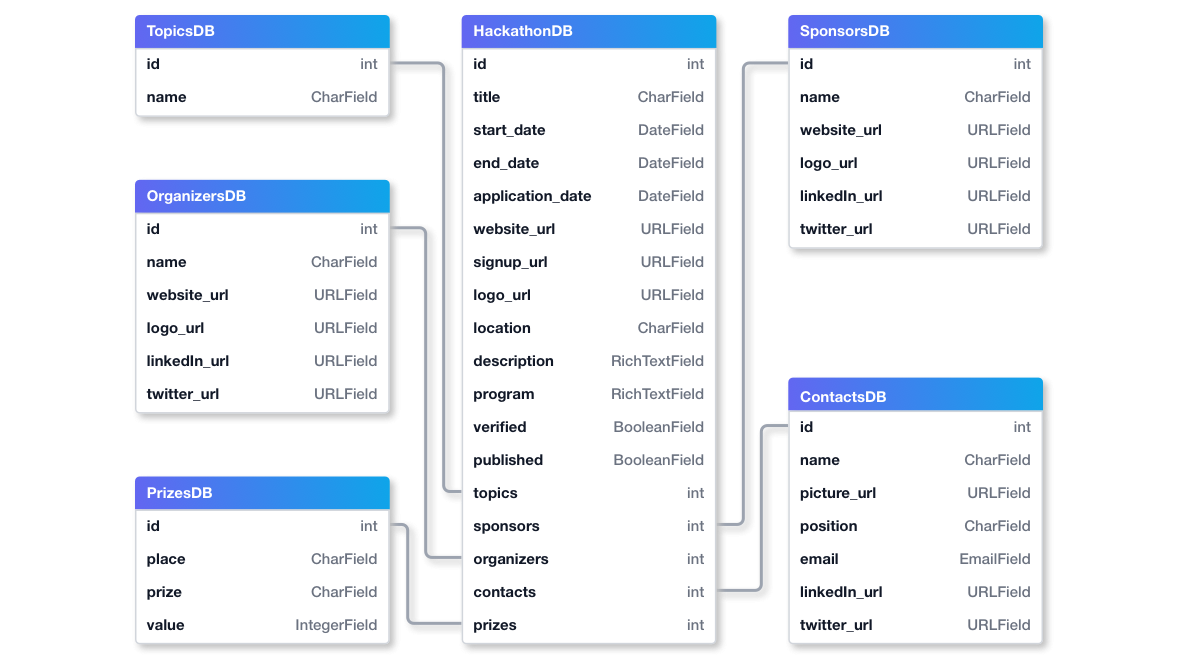
For more details on Django models, refer to the official Django documentation.
Templates
Templates in Django generate and modify HTML based on the data provided. This code snippet displays topic tags in the hackathon list.
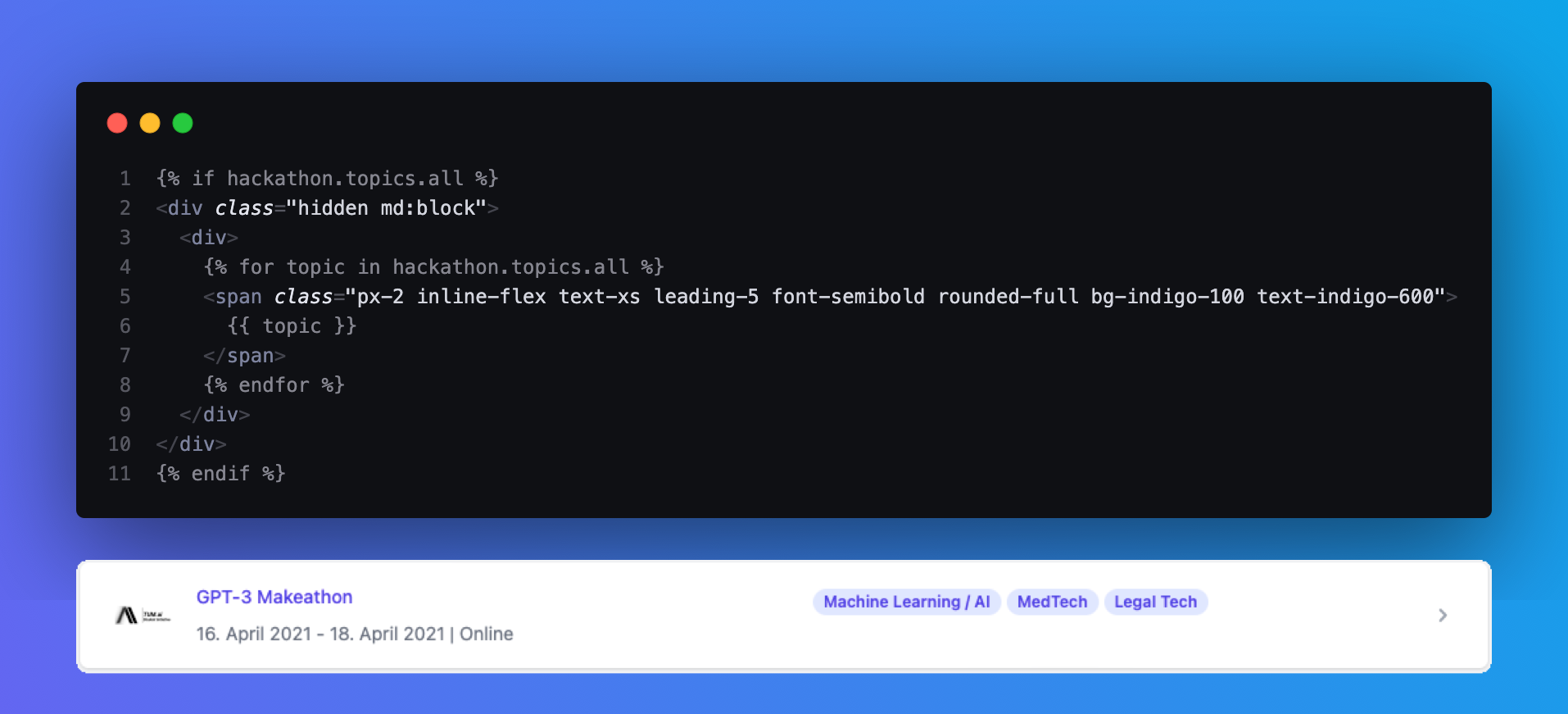
Tailwind CSS was used for styling, providing a utility-first framework for rapid development. Pre-designed components from pre-designed components were utilized to accelerate the UI design process.
More on Django templates can be found here.
Views
Views handle the logic of connecting templates to models. This view is triggered when a user clicks on a hackathon, taking the request and the hackathon id to return the detail page.

Detailed information on Django views is available here.
The site was hosted on Heroku, using PostgreSQL for the database and GitHub for continuous integratio & deployment deployment (CI/CD).
Overall, I was surprised by how much was possible with Python and a little bit of HTML and CSS. However, the next time I would likely go for a different architecture with a stronger separation of the back- and frontend for more flexibility. Depending on the size of the project, I would probably build the frontend in either React for more advanced projects or Webflow for easier ones. Django also has a framework to develop REST APIs which includes tools for authentification, serialization, and other important parts. Alternatively, backend-as-a-service solutions such as Supabase could be an interesting choice.
Challenges
On the business side, Rockethack.io was dealing with the typical cold start/chicken-or-egg problem. The site is not attractive to students if there aren't any hackathons listed. But without any traffic, listing a hackathon is not worth it for organizers. To overcome this, I was searching for hackathons and adding the data myself in the beginning. However, it quickly became apparent that this was not sustainable long-term.
I implemented two solutions for this challenge:
When searching for hackathons, I noticed that most organizers had their own website indexed on Google, but none of them took advantage of the Google Event Enhancements (a special format of search results for events, similar as the "Shopping"-listings at the top of the search results). I quickly implemented and automated the standard, linking to the listing on Rockethack.io, to increase the reach of the listings and get additional search impressions and traffic.
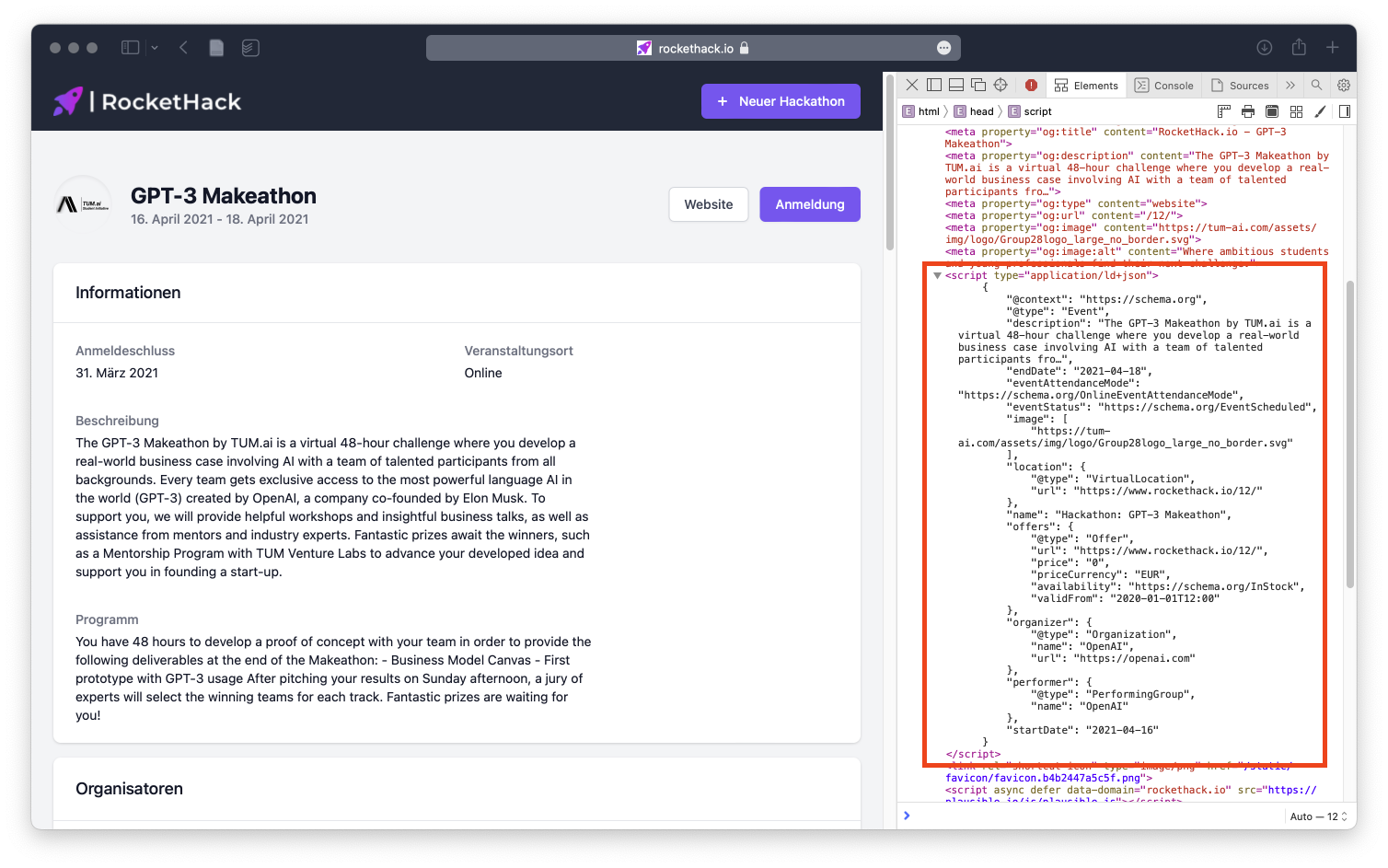

Additionally, I added a "Add Hackathon" feature for organizers to list their hackathon on Rockethack.io. To ensure that this feature would not be abused (by including spam/dangerous links or content), each submission would be stored in the database, but not published until verified and approved by me.
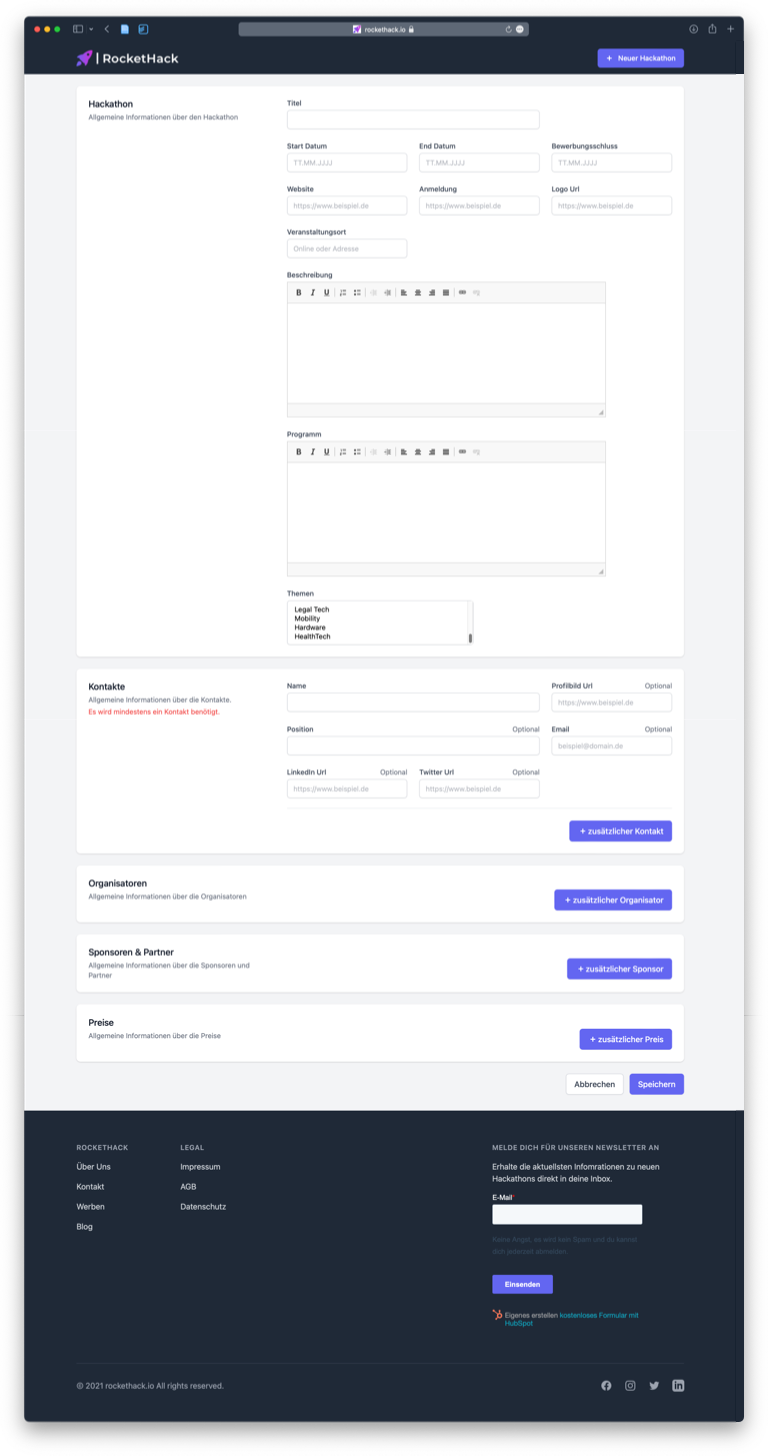
Conclusion
Rockethack.io was my first public project, involving significant learning and development. Despite the challenges, the platform reached over 250 users and gained close to 4,500 impressions on Google. Although the project is inactive, it remains online, and I may revisit it in the future. The experience provided invaluable insights into web development and project management, laying the foundation for future endeavors.